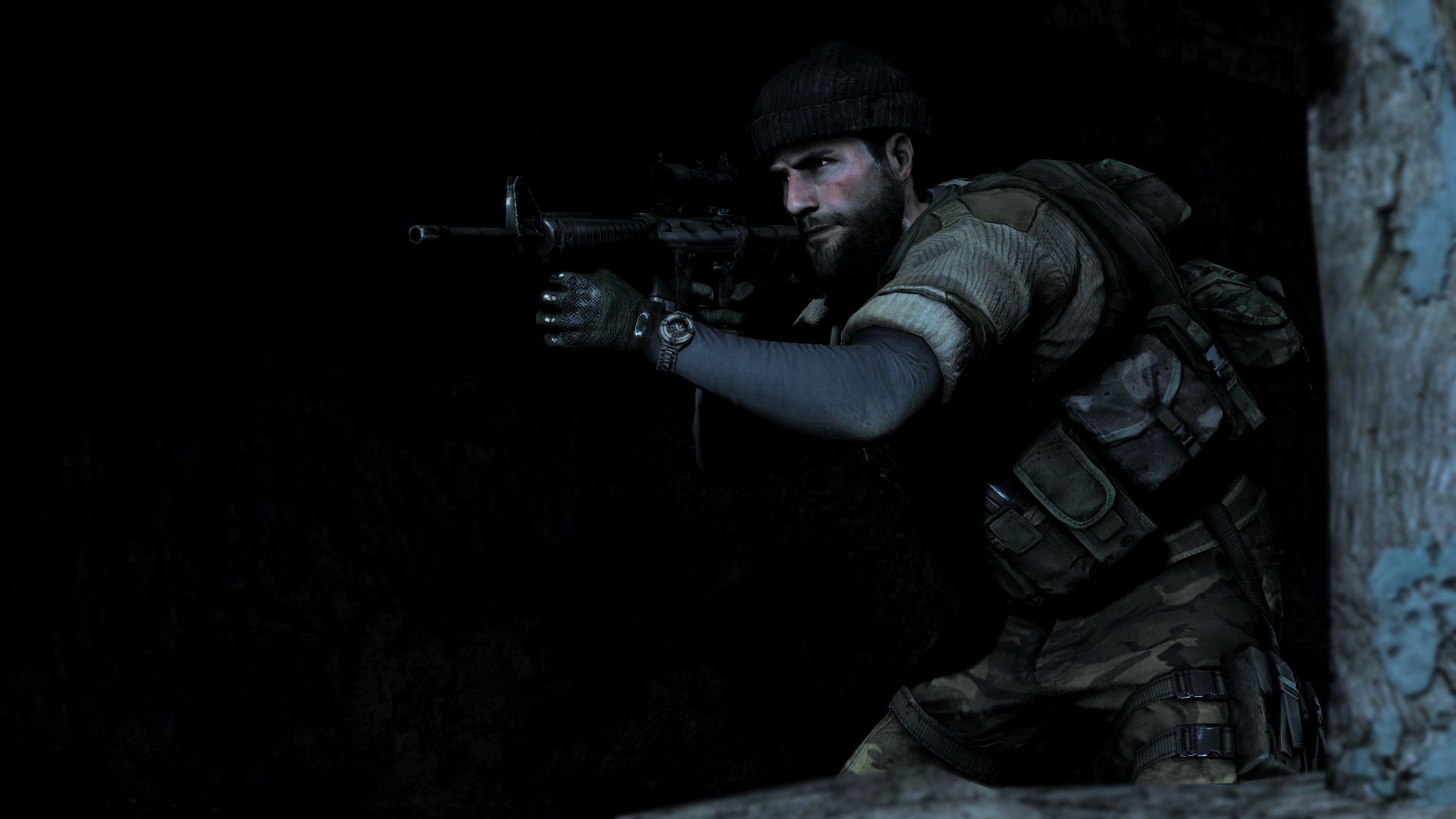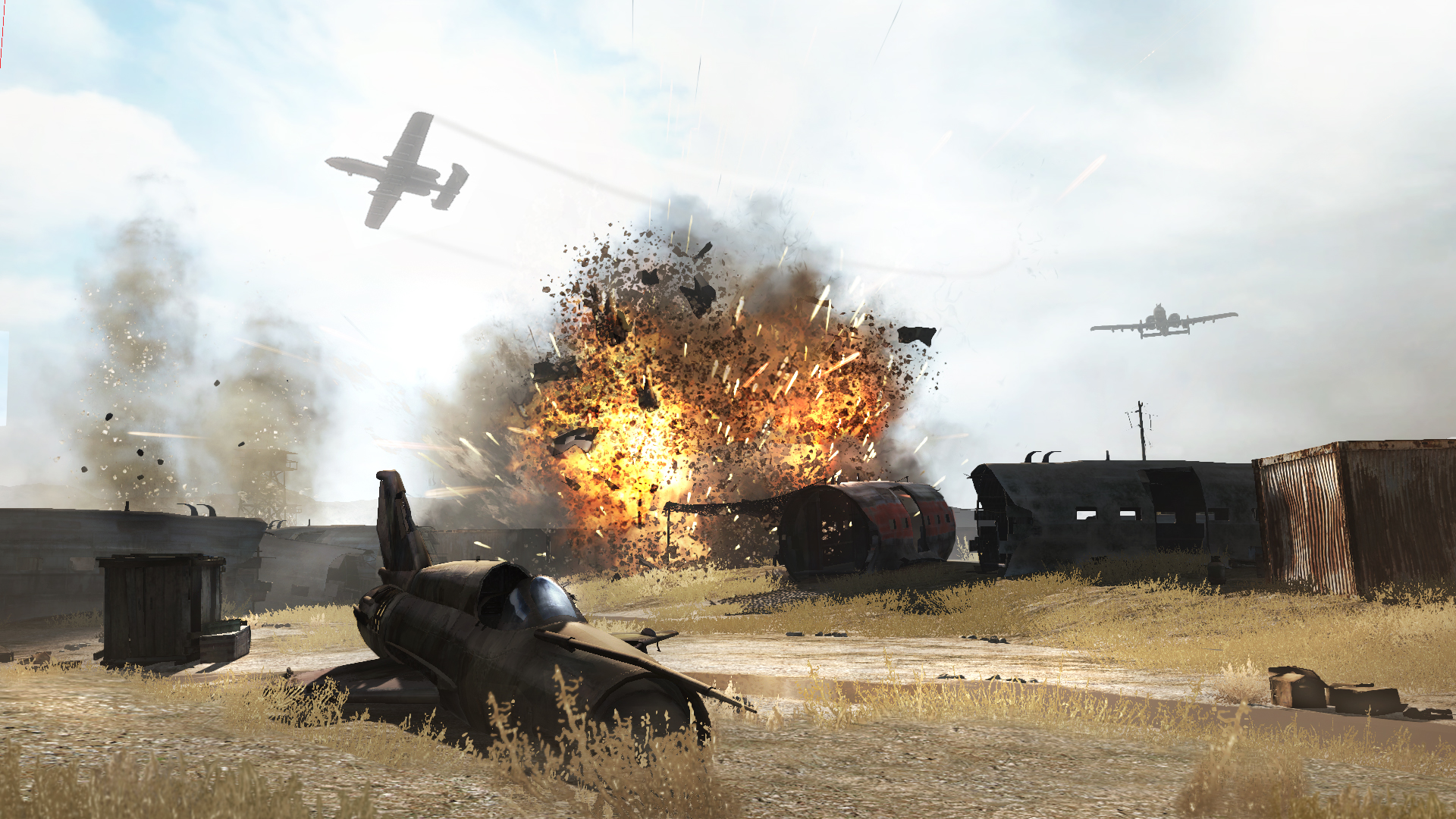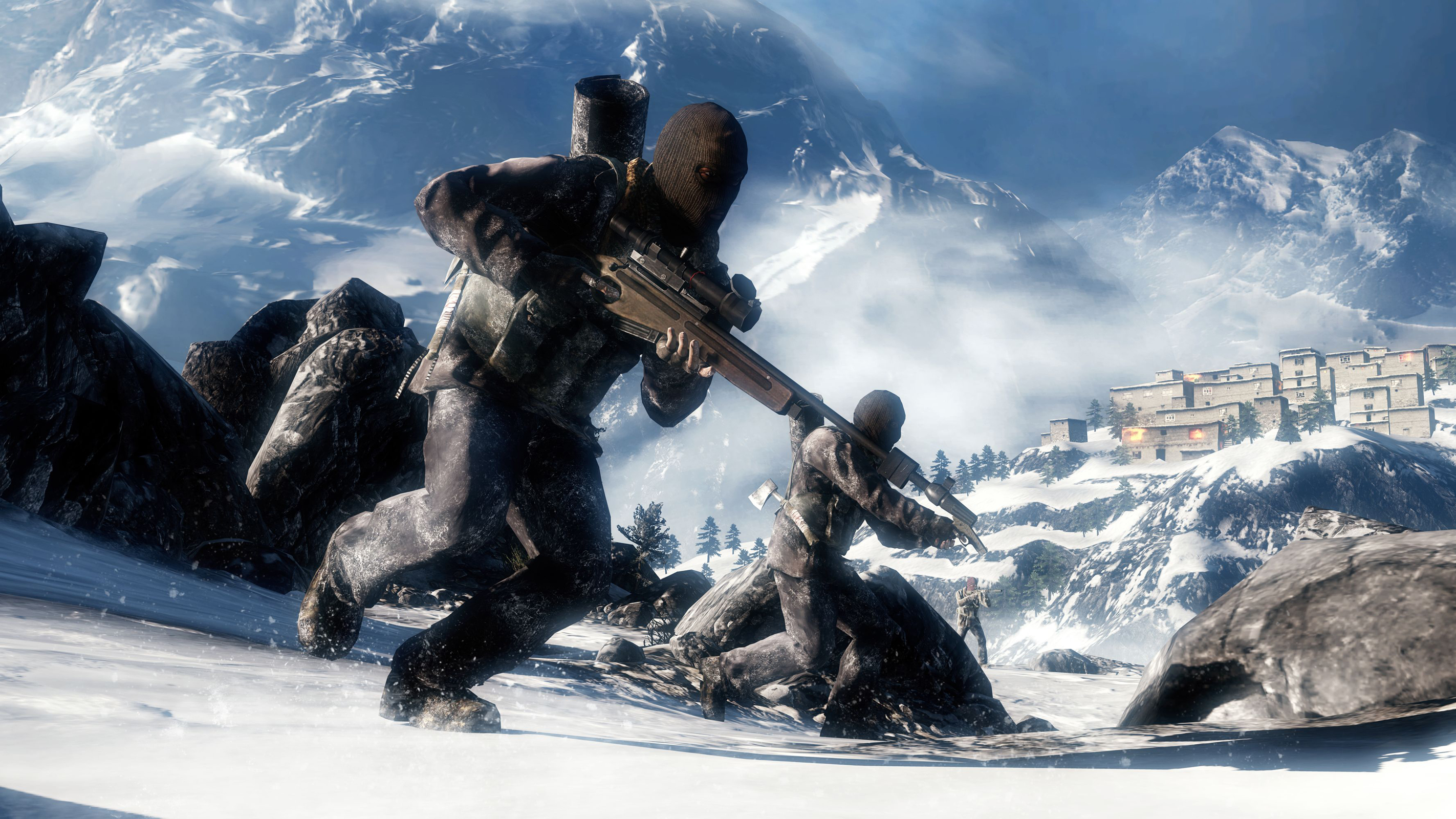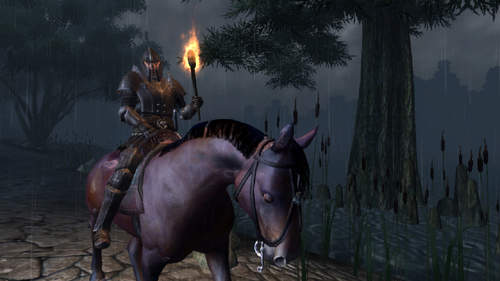This post has not been edited by the GamesBeat staff. Opinions by GamesBeat community writers do not necessarily reflect those of the staff.

I'm sneaking through an Afghan village in the dead of night. Enemy forces have ambushed my four-man squad, and we've had to leave our transport. We're trying to rescue a hostage, but he could be anywhere. So we have to tread carefully.
Suddenly I see a shadow dart across a courtyard strewn with crates and rubble. Then another shadow. Then they open fire.
I slide into cover behind a dumpster. I'm a long way from my targets, but that's OK. I'll hit 'em. I'm just that good. I squeeze the trigger.
My bullets never reach my target.
Instead, they go smashing into my squadmate, who has just run across my field of fire in an effort to find cover further up. He staggers, yelling, "Check your fire!" Then he gets back up and finds his intended cover position, seemingly fine and unhurt.
Is it a miracle? No. It's a video game. And in video games, friendly fire usually doesn't matter.

I took this example from the Medal of Honor single-player campaign, but it could just as easily come from any number of games that treat accidentally murdering your allies as a foregone conclusion, and thus make them impervious.
I'm not talking about multiplayer, by the way. Unless you like being griefed (or unless it's a specific design choice, like in Left 4 Dead), it's a good thing that multiplayer games find ways around friendly fire. I'm fine with that.
But nothing pulls me out of the reality of a game like watching my bullet-sponge buddies soak up shot after shot, whether from me or from each other. By the time I reach the end of a campaign, my brothers-in-arms should have died dozens of times over. And yet there they are, screaming my name ("Rabbit! Do everything!"), as if I haven't single-handedly decimated my own platoon.
The funny thing is, the Medal of Honor campaign actually tries to use friendly fire as a plot point. Except it's not during gameplay. It's during a post-mission cut-scene, where a stereotypically aloof general orders an airstrike on an Afghan unit, not realizing they're actually your allies.
You're supposed to feel anguished and conflicted over the needless, stupid loss of your own troops. Instead, I just kept thinking about shooting members of my own squad. Why should I care about blips on a radar screen when my own men are apparently invincible?

Medal of Honor's developers have stated that they were trying for a more realistic tone in their campaign — that they wanted players to feel more like real soldiers. And in some places they succeeded. (Perhaps too well, as Bitmob community writer Brad Grenz suggests.) But the illusion shatters when poor AI makes my team members behave like Rambo. In fact, it leads me to play the game more recklessly, too.
I'm not asking for some Pat Tillman-esque controversy, either. And I don't want to be able to shoot up my own team on purpose. Nor do I want my bullets to just pass through them harmlessly. I'd just like a sense of consequence to my actions — a sense that what I do or don't do matters.
Games in other genres are better at managing this. In The Elder Scrolls 4: Oblivion, you can take on pretty much anyone, whether they're friendly or not, and the game reacts accordingly. Sure, you can take a couple wild swings at comrades in the heat of battle and get off with a warning. But if you deliberately choose to harm an ally, you set yourself up for a lifetime on the lam. One action spreads ripples across your entire game experience. (And if it really was a mistake, you can just reload.)

Even Star Fox handled friendly fire in a more believable way. You might get annoyed at your inept squadron members, but at least you knew that if you didn't save them, or if you shot them yourself, they were dead. For good. Or at least until you started over. Compare this to most war shooters, where deliberately shooting a teammate for too long simply leads to an immediate fail state.
Maybe it's just an issue of AI. Maybe better-programmed allies wouldn't jump in front of my gun, and this wouldn't be a problem. But it's still hard for any campaign to carry any weight when you feel like your actions have no real repercussions.
It's not just a question of difficulty. It's a question of making me feel like my virtual life, and the lives of my allies, are valuable.
And if all I get is "Check your fire!" I don't see that happening.
